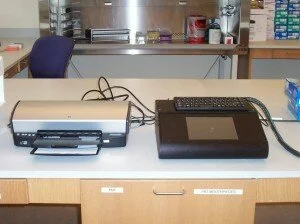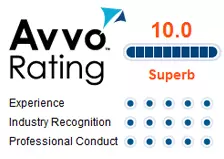I rarely write about war stories, but thought this one might be a good one to relate on this blog.

Michigan's DataMaster DMT
First some background. In some courts in Michigan a jury in a drunk driving case is picked one day and subsequently a trial date is set. The trial date may be several weeks later. It’s also very typical for the prosecutor to ask the defense attorney, before trial if he or she will stipulate to the simulator logs. My answer is nearly always the same – “no.” The simulator logs, also known as accuracy check logs, ostensibly show that the DataMaster is functioning properly and can accuratley measure a person’s breath alcohol level.
The reason the question is even asked is because for many years it has been common practice in Michigan for the prosecutor to enter the simulator logs as a business record. This sometimes requires the testimony of only the officer that administered the breath test, regardless of it he/she participated in preparing and running the simulator solutions or even if this officer has no personal knowledge that might otherwise be required of a “keeper of the records.” In other words, in a Michigan DUI trial the logs pretty much always come in with little foundation.
In this case when the prosecutor asked I said I would not stipulate to the breath test simulator logs. The prosecutor responded by saying “I’ll get the keeper of the records” to which I responded have you read Melendez-Diaz? I told her that at a minimum I wanted at least some of the simulator operators and the 120 day inspector. The prosecutor wasn’t sure if she could get either.
When we were about to call the jury into the court room (who had not been sworn yet so no double jeopardy) the judge asked if we had any motions to which the prosecutor responded that I was asking for certain witnesses relative to the breath test and she didn’t think she could get them and also didn’t think she needed to get them.
The new judge hearing the case, who stepped from the prosecutor’s office to the bench, had not read the Meledez-Diaz case yet, but nevertheless listened to our arguments.
The prosecutor stated that in the MD case the issue related to the admissibility of the toxicology report in a cocaine case without the testimony of the person who ran the test. She argued that with a breath test drunk driving case the only witness MD required was the officer who ran the breath test. She likened MD to a breath test case where only the breath test ticket was administered. She further argued that the logs were kept pursuant to the administrative rules, and in Michigan, if the administrative rules are violated the violation goes to weight not admissibility. Also, that the breath test simulator logs were admissible as a business record.
I argued to the contrary that Melendez-Diaz makes it clear that in a criminal case the hearsay exception rules of evidence are irrelevant insofar as documentary evidence is concerned. Instead, the inquiry is whether or not the at issue documentary evidence is testamentary. Since the term is not absolutely defined in either Crawford or Meledez-Diaz, the working definition is that a document is testamentary if it is being used to prove a fact at trial. Clearly, the breath test simulator logs are being used to prove that the breath test results are admissible but more importantly that they are reliable.
It was the judge’s stated opinion at this point that Michigan law has long held that defects in the logs go to weight and so inquired as to what I believed would be the remedy for such “violation.”
I indicated to the judge that he was rightly approaching the problem, which was first to determine if there was a violation and next to determine what the remedy would be for such violation. I explained to the judge that in my opinion this is not just an issue of admissibility but rather an issue of confrontation, that is, it was for the court to determine whether or not my client’s Sixth Amendment right to Confrontation was being violated by the prosecution’s failure to call these witnesses. With Constitutional violations, depending on the circumstances, the remedy is either dismissal or suppression. I suggested that the remedy in a drunk driving case would be suppression of the breath test results.
I argued that since the cop who administered the test knows nothing about how the machine works, the defense cannot “confront” the witness stating he was above the legal limit, namely the DataMaster, without witnesses that possess such knowledge. Particularly, witnesses who can discuss why the test result is (or is not) reliable. That the rest result means what it purports to mean – that the defendant was above the legal limit.
I also argued that making the witnesses available for me to subpoena was not enough, the prosecutor had to actually call them.
After a good deal of further discussion which took place in judge’s chambers as he was skimming the Melendez-Diaz opinion, it was ultimately decided that the trial would be adjourned. In the meanwhile both parties where asked to submit written briefs after which the judge will make an actual ruling as to whether or not prosecutor must produce the witnesses.
I’ll post more later. This ruling won’t come until mid-September.









